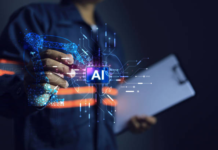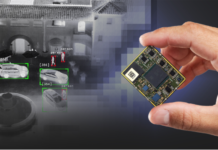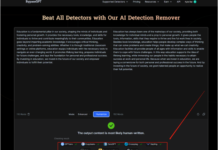
We all know where this future leads: machines become too smart, catch a streak of teenage rebellion, and overthrow their fleshy, meat bag creators – us. If you think this is a crazy notion, then you are at odds with people like Stephen Hawking who are convinced this future is inevitable.
I’m not saying it will happen, only that it may. If it does, we’ll know to blame that darn smart TV remote that’s tired of getting its buttons pushed.
Internet of Things (IoT) is well on its way to this level of intelligence. While you probably (hopefully) aren’t having conversations with the TV remote yet, AI research and IoT development are on a collision course with one and other.
The Strengths and Weaknesses of Current Tech Intelligence
For most of their history, computers have had an intelligence paradox. On one hand, they are drastically more intelligent than humans. They can solve math problems too complex for humans, and the early computers were outperforming humans with space flight calculations before we even put a man on the moon.
There’s no doubt that the average computer would ace a math class and probably replace the teacher at the same time. However, it would utterly fail an English, philosophy, or any other liberal arts course that’s more about the quality of thought than the quantity.
Computers are dumber than most infants when it comes to the things that make our brains unique. In fact, conservative estimates place the human brain at 30x faster than modern supercomputers. Understanding cause and effect, emotions, free will, all of these things remain simple definitions and subroutines made up of binary code in computers.
Current research in AI and machine learning is trying to change this. Machine learning is trying to teach computers to handle learning and processing new information on their own without the help from some poor, underpaid programmer. AI would eventually like to mimic, if not surpass, human intelligence and free will.
The Limits of Large Data Processing
Once again, I’m talking about smart, like knowing not to sext a police officer. Right now, smart devices are pretty dumb because of their limitations. Most don’t know how to learn without human assistance.
For example, the latest crop of smart devices has become excellent at storing large amounts of diverse information. They get this information from various sensors and inputs that people build into them. However, humans and computer programming are still required to make any sense of the data.

Many people argue that the future success of IoT is only possible using artificial intelligence. The amount of data we will have to process will be so great that only computers will have any chance of working with it.
This means that computers will have to learn, presumably for themselves, how to analyze the data in a way that is useful for us. This doesn’t necessarily scream free will, but it’s certainly a step up from where computers are today.
Still, I think it’s safe to say that a robot uprising isn’t likely any time soon. Granted, I could wake up tomorrow and face Mr. MurderBot 2000 staring at me in bed, but then I probably would deserve it.
AI Challenges in the Internet of Things Industry
Whether artificial intelligence is crucial for IoT’s success or not remains to be seen. Unfortunately, we are probably far away from seeing the outcome of this unknown. Current AI research is still struggling to gain ground within the IoT industry. A part of this is because many businesses are still trying to figure out how artificial intelligence will even play a role within their own framework.
Smart devices, like wearables, are still finding purpose among consumers, so until they are more established, it’s unlikely that artificial intelligence will find its own space.
More than that, there is a distinct lack of talent in the tech industry related to AI research. Most of the progress we have had in this field comes from colleges and academic research programs.
The divide between academia and business will have to shrink in order for us to see any hope of true machine thinking and learning.
The Future of the Robot Uprising
The role of artificial intelligence isn’t clear enough to say whether it’s going to play a massive role in the future of IoT. If those who say that AI is necessary for IoT are right, then the future of smart devices may be at risk.
Ultimately, I think it’s safe to say that AI needs to get a more solid footing in this space before we have any fear of machine misuse or rebellion. This is a future that is popular in the movies, but is unlikely to occur anytime soon.
P.S. In case I’m wrong about all of this, let me just say to the Mr. MurderBot 2000 no doubt breaking into my bedroom: do be gentle.



















